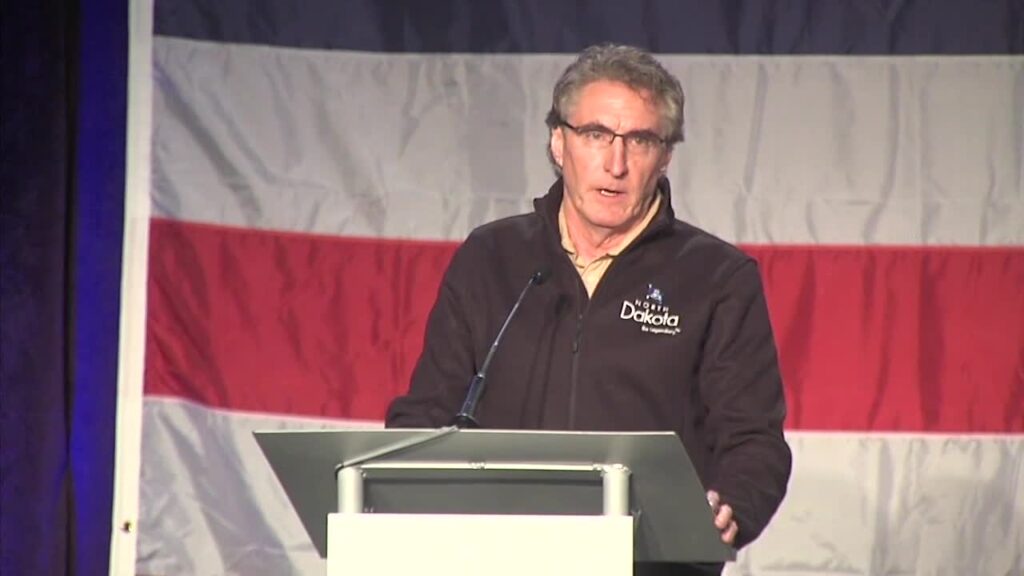North Dakota officials warn Minnesota regulators carbon-free mandates may be unconstitutional
Officials in North Dakota are renewing concerns over Minnesota’s renewable energy standard, which requires all electricity to come from carbon-free sources by 2040.
Last week, the North Dakota Industrial Commissionsent a letterto the Minnesota Public Utilities Commission, saying the state has “significant and legitimate concerns” over theClean Energy Lawthat Governor Tim Walz signed in 2023.
The commission, led by North Dakota Governor Doug Burgum, raised concerns that Minnesota is “imposing local legislation” that violates several federal acts that regulate interstate commerce and energy production.

“North Dakota does not regulate within the border of Minnesota,” the letter reads. “Minnesota likewise should not attempt to regulate within the borders of North Dakota. Put more simply, North Dakota determines how and what safe and clean energy is generated in North Dakota, not Minnesota.”
The bulk of the letter’s comments request that regulators include carbon capture and sequestration technology under the definition of “carbon-free.” However, a footnote in the letter leaves open the possibility that North Dakota could take legal action against Minnesota over the law.
This isn’t the first border battle over renewable energy standards. In 2011, North Dakota sued Minnesota, arguing portions of the Next Generation Energy Act were unconstitutional.
That law, signed by Governor Tim Pawlenty in 2007, prohibited out-of-state producers from supplying Minnesota with power from new coal plants.
Lori Swanson served as Minnesota’s Attorney General during that time and defended the state in the lawsuit.
“They’re a big energy producer,” Swanson said during a recent interview. “They want to be able to continue to export that energy to other states. And so for them, I think it’s an economic issue that’s driving them to take the positions they’re taking.”
After a nearly nine-year legal battle, the court struck down the 2007 law.
Swanson said while Minnesota’s new 2040 standards are different from the previous law, she expects any legal challenge will have a wide impact.
“You have a lot of states that are passing these kinds of laws now,” she said. “It’s not just a Minnesota, North Dakota border dispute. In the event of a bad or adverse court ruling, it potentially could impact how other states go about these type of regulations.”
The Minnesota Rural Electric Association is also watching closely. CEO Darrick Moe said many of the cooperatives they represent rely on power generated in North Dakota.
“We as co-ops, and indeed the industry as a whole, move these resources around, between state boundaries,” he said in an interview earlier this week. “It’s very important that we continue to be able to do so in order to keep the power system reliable and affordable.”